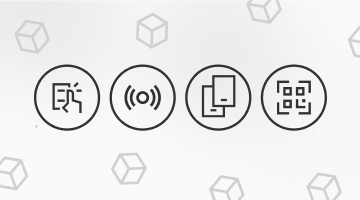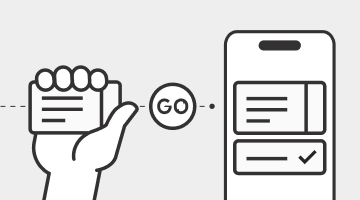The MATTR teams have been hard at work adding new capabilities and additional features to our MATTR VII platform, SDKs and MATTR Wallet.
We’ve spent a lot of time collaborating with customers to better understand their needs and expectations when it comes to data security, auditability and user experience.
Here’s a walkthrough of what’s new in the MATTR universe – including new cloud deployment options, enhanced security features and a fully revamped digital wallet.
Introducing event logs to the MATTR VII platform
We have added enhanced logging for all key API calls (platform events logs) to the MATTR VII platform. Over 130 different types of events are now logged! There are three different levels of logging that can be configured:
- Level 1 – Basic information such as the API name, date, time and request ID
- Level 2 – Basic information + metadata
- Level 3 – Basic information + metadata + full API payload information
All MATTR VII public cloud deployments are set to Level 1, which excludes any personally identifiable information (PII).
In MATTR VII private cloud deployments, the logging level is configurable based on the customer’s audit, user privacy and operational requirements. Private cloud users can also leverage our integration adaptor to extract the platform event logs to their systems, e.g., centralised audit logging stores, SIEM, billing capability or data warehouses.
Get notified of event updates automatically with webhooks
MATTR VII now supports webhooks, a standard design pattern that allows subscription to specific MATTR VII platform events in real time. Customers can be automatically notified of these platform events and either integrate that information into specific workflows or store additional information.
The first webhook that customers can subscribe to will notify them each time a credential is issued by the MATTR VII OIDC bridge. This enables ongoing credential lifecycle management activities with the information returned in the webhook, such as sending additional communications to the holder or augmenting end user records.
Read the technical tutorials on how to implement webhooks on MATTR Learn.
We’ll be adding additional webhooks in the future to give MATTR’s customers even more flexibility in integrating their systems with the MATTR VII platform.
Use our HTTP Signatures library
To provide customers with confidence in the integrity and validity of webhook events, we've open-sourced our HTTP signatures library - anyone can now integrate it with their own applications.
HTTP message signatures are a way of digitally signing an HTTP request to give the receiving party assurance of the integrity of the message, and that the party sending the information is who they say they are. Though this mechanism can be applied to any HTTP request, it's particularly effective when used with MATTR VII webhook events. It allows the subscriber to authenticate that the signed request is, in fact, coming from MATTR VII.
Read more about how we’re enhancing the security of webhooks with HTTP signatures.
Meet the new MATTR Wallet
We’re thrilled to announce we've re-released the MATTR Wallet – our digital wallet app that helps showcase to developers and ecosystem pilot partners how verifiable credentials can work in the real world, in real-time.
The latest release has been designed with end users in mind, accessibility tested and informed by in-depth customer insight.
It includes a fresh onboarding flow, which reduces friction for first-time end users, and a new home screen that consolidates important information. Improved navigation and powerful new search capabilities make it easier and faster for users to find what they need.
An interactive activity tab has been introduced. It lists all interactions and highlights items that need attention. End users can view their history and filter interactions quickly. Clearer transaction screens make it easier to review what's being received and give consent for sharing.
Our research has shown that end users trust digital credentials that mimic their real-life cards and certificates more readily, so issuers can now customise their credentials. Customers can add logos, choose background colours and create watermarks on digital credentials to make them feel more like real-world versions.
Get in touch with us to explore how the MATTR can accelerate your project’s time to market and how MATTR’s wallet capabilities (including SDKs and white-label options) can be used to support your proof-of-concept phase and beyond.
For those who want to see the MATTR Wallet showcase these new features in action, download and prototype with our latest tech by visiting the App Store, or Google Play store.
NB: This product may only be used in production by pre-approved pilot partners.

Security and deployment to meet enterprise-level needs
One of our top priorities at MATTR is offering the right options when it comes to how and where our platform is deployed, and meeting our customers’ availability, security, efficiency and privacy needs.
MATTR VII is now live in two additional AWS regions – Frankfurt, Germany and Montréal, Canada – which gives our European and North American customers enhanced platform support and options to meet their data sovereignty and compliance requirements.
Find out more about how the MATTR VII platform can be deployed.
We’re committed to providing high-quality enterprise and government-grade solutions with our SOC2 and Cyber Essentials Certified Plus compliance. Additionally, security firm Trail of Bits has completed an independent audit of the key code libraries that power the MATTR VII platform.
We take customer data very seriously and continue to uphold the highest possible standards for confidentiality and integrity throughout our organisation, including our processes, our people and our systems.
Read more about how the MATTR Security Framework supports diverse compliance and safety needs.
More options for OIDC bridge issuances and configurations
For customers, integration with existing infrastructure eases the burden of adopting the new tools and capabilities MATTR provides. In particular, the use of OpenID Connect (OIDC) as a common protocol for credential exchange has been a very effective pattern for our customers and continues to gain traction in the broader internet standards community.
We’ve enhanced our OIDC bridge extension to support additional identity providers like Okta, ForgeRock and AzureB2C. Customers can now easily integrate credential issuing capabilities with more of the identity providers they already use.
Additional OIDC configuration options are also now available to help customers customise and simplify the user experience of collecting credentials.
MATTR helps organisations and governments incorporate verifiable credentials into their operations in a secure, simple and accessible way. If you’re interested in learning how MATTR products can make yours better, get in touch with us today.
This article was first published on Medium.







